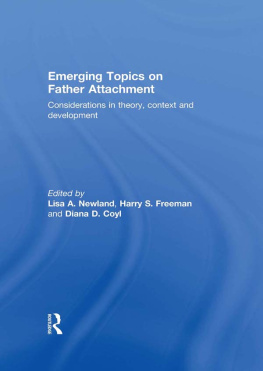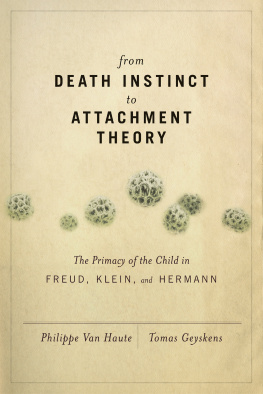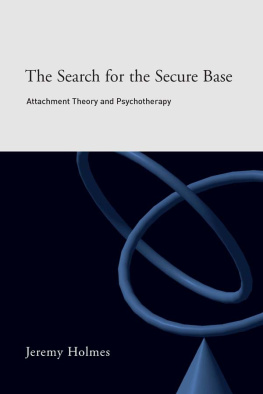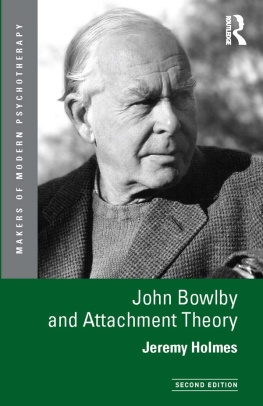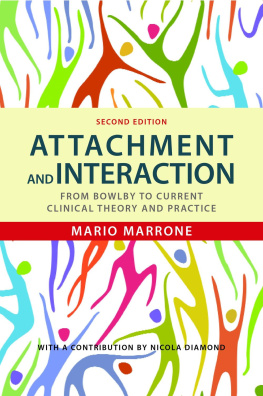Navigation
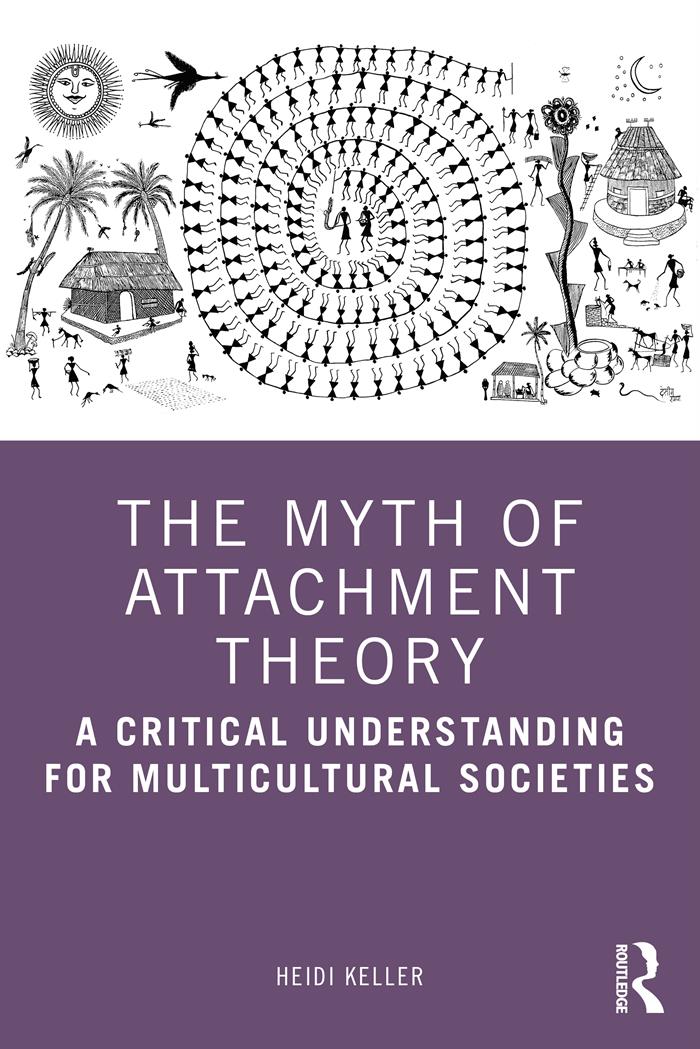
Heidi Kellers volume is an expression of resistance a fight for truth against a singular story, a story that has become one of the most prominent and popular ideas in the human sciences, Attachment Theory. Keller argues against the theoretical (and methodological) assumptions, as well as cultural domination in science, that has been historically defined by the universalisation of the ideology of individualism. I believe this book, like Cultures of Infancy, will make a path-breaking contribution to the field.
Nandita Chaudhary, Delhi, India, from the foreword to this edition
Heidi Keller encourages us with this book to be pugnacious and confrontative, but at the same time invites and supports us to give strength to professionals engaged in work with children and their families.
Xenia Roth, Mainz, Germany
The Myth of Attachment Theory will become a milestone in the history of psychology.
David F. Lancy, author of The Anthropology of Childhood, Utah, USA
In this brilliant book, Keller outlines the evolution of attachment theory and the dynamics of its unfolding, including the resistance to criticism of its followers The Myth of Attachment Theory opens a new window to practitioners, parents and researchers and advocates for a contextually embedded understanding of child development.
Dorit Roer-Strier, Director, Nevet: Greenhouse of Context-Informed Research and Training for Children in Need, School of Social Work and Social Welfare, Hebrew University of Jerusalem, Israel
THE MYTH OF ATTACHMENT THEORY
The Myth of Attachment Theory confronts the uncritical acceptance of attachment theory challenging its scientific basis and questioning the relevance in our modern, superdiverse and multicultural society and exploring the central concern of how children, and their way of forming relationships, differ from each other.
In this book, Heidi Keller examines diverse multicultural societies, proposing that a single doctrine cannot best serve all children and families. Drawing on cultural, psychological and anthropological research, this challenging volume respects cultural diversity as the human condition and demonstrates how the wide heterogeneity of childrens worlds must be taken seriously to avoid painful or unethical consequences that might result from the application of attachment theory in different fields. The book explores attachment theory as a scientific construct, deals with attachment theory as the foundation of early education, specifies the dimensions that need to be considered for a culturally conscious approach and, finally, approaches ethical problems which result from the universality claim of attachment theory in different areas. This book employs multiple and mixed methods, while also going beyond critical analysis of theory to offer insight into the implications of the unquestioning acceptance of this theory in such areas as childhood interventions, diagnosis of attachment security, international intervention programs and educational settings.
This volume will be a crucial read for scholars and researchers in developmental, educational and clinical psychology, as well as educators, teachers-in-training and other professionals working with children and their families.
Heidi Keller is Professor Emeritus of Psychology and former Head of Department, Culture and Development, Faculty of Human Sciences, Osnabrueck University, Germany. Among many international awards, in 2019 she was the recipient of the SRCD Award for Distinguished Contributions to Understanding International, Cultural and Contextual Diversity in Child Development.
THE MYTH OF ATTACHMENT THEORY A Critical Understanding for Multicultural Societies
Heidi Keller

Cover image: Indigenous painting by a tribal group from Gujarat, India.
First published 2022
by Routledge
2 Park Square, Milton Park, Abingdon, Oxon OX14 4RN
and by Routledge
605 Third Avenue, New York, NY 10158
Routledge is an imprint of the Taylor & Francis Group, an informa business
2022 Heidi Keller
The right of Heidi Keller to be identified as author of this work has been asserted by her in accordance with sections 77 and 78 of the Copyright, Designs and Patents Act 1988.
All rights reserved. Authorised translation from the German language edition published by Verlag das netz, Weimar.
No part of this book may be reprinted or reproduced or utilised in any form or by any electronic, mechanical, or other means, now known or hereafter invented, including photocopying and recording, or in any information storage or retrieval system, without permission in writing from the publishers.
Trademark notice: Product or corporate names may be trademarks or registered trademarks, and are used only for identification and explanation without intent to infringe.
First published in German by Verlag das netz, 2019
British Library Cataloguing-in-Publication Data
A catalogue record for this book is available from the British Library
Library of Congress Cataloging-in-Publication Data
Library of Congress Control Number: 2021946915
ISBN: 978-0-367-76475-3 (hbk)
ISBN: 978-0-367-76478-4 (pbk)
ISBN: 978-1-003-16709-9 (ebk)
DOI: 10.4324/9781003167099
Typeset in Bembo
by MPS Limited, Dehradun
CONTENTS
FOREWORD TO THE GERMAN EDITION
Care and education of children is the natural right of parents and their first and foremost duty (German constitutional law, 1).
It is written in the German constitution that parents have the right and the obligation to educate their children in their own responsibility. After the experiences of the Nazi time (19331945), where the state overrode the parental will in order to imprint Nazi ideology into the children, the founders of the constitutional law of the federal republic of Germany have put a lot of effort in defining the framework for protecting the family from state encroachment. It is the will and high good of the German society to protect parents right to care for their children and educate them in their own way and thus express their love and responsibility. State offers are meant to support parents in their endeavours. Daycare institutions, be they governmentally or privately run, should provide such offers. But is this really the case, are parents really supported?
The developmental psychologist Heidi Keller wants to rouse the professional world with her book, in order to seriously address these questions. She confronts with a clear answer: No! Parents and families do not find in many cases the support they need.
I also felt confronted when I listened to her, giving the plenary opening talk during the annual meeting of the Pestalozzi Frbel association in 2009. The topic was Children need Children. The importance of the childrens group during early childhood. I remember especially the many pictures and video sequences that she presented. There were, e.g., the Western middle families. Yes, I thought, in these pictures I recognize myself and my friends. Then she displayed pictures and video clips from the rural culture of the Nso in Cameroon. These documents showed a completely different reality. Elsewhere it is just different, I thought. Heidi Kellers conclusion at the end of her presentation was not elsewhere, but everywhere it is different! And this idea confronted strongly my thinking. Ninety-five percent of the worlds population have different ideas and practices about childrens development than I have and the people I know, and thus also a large proportion of parents in daycare institutions for which I carry co-responsibility as a referee in the ministry of education of my state.


